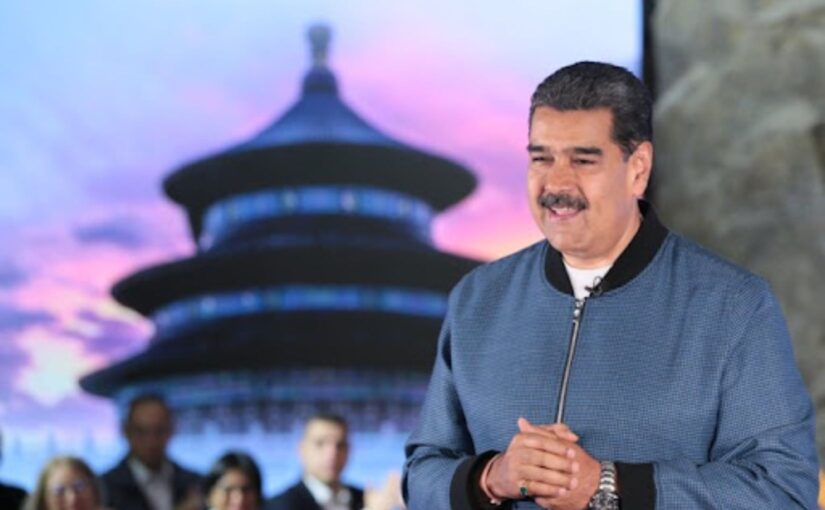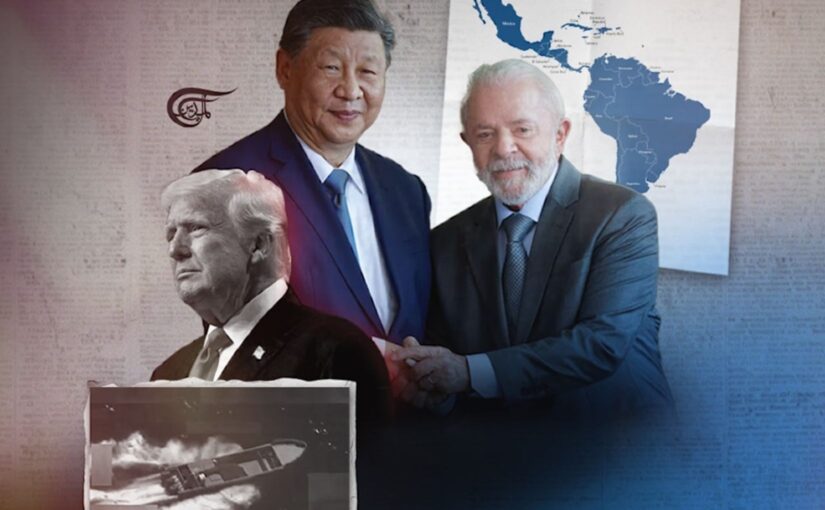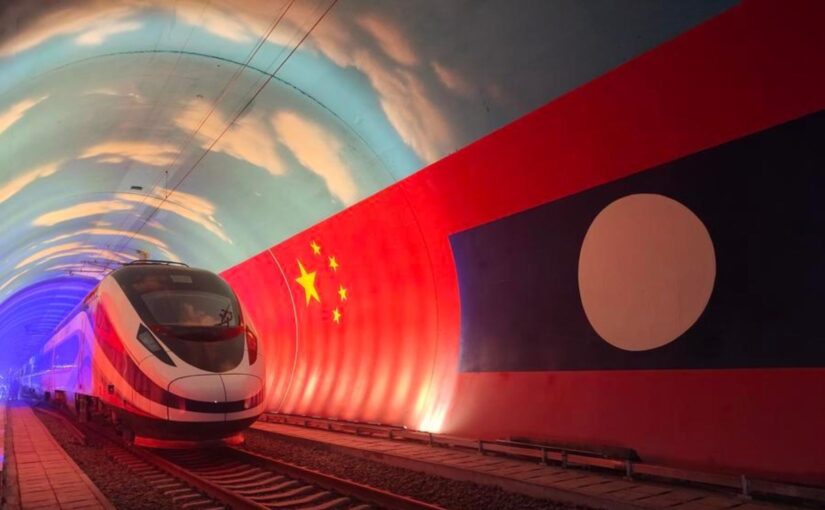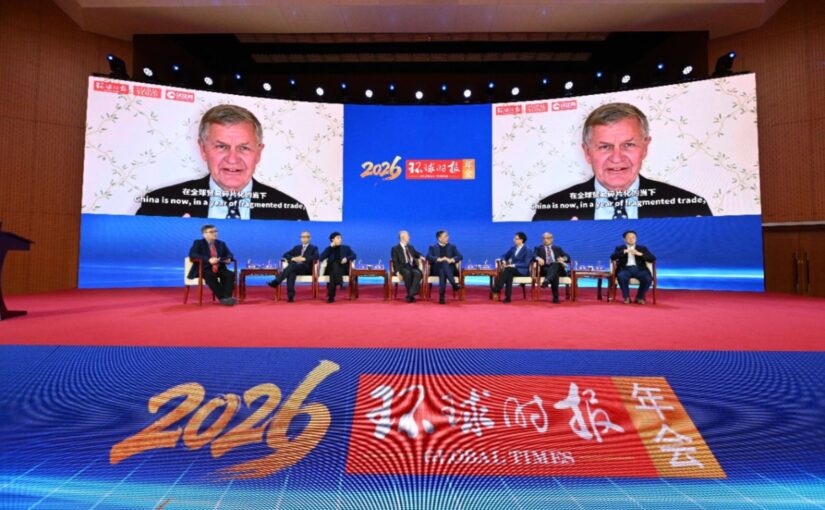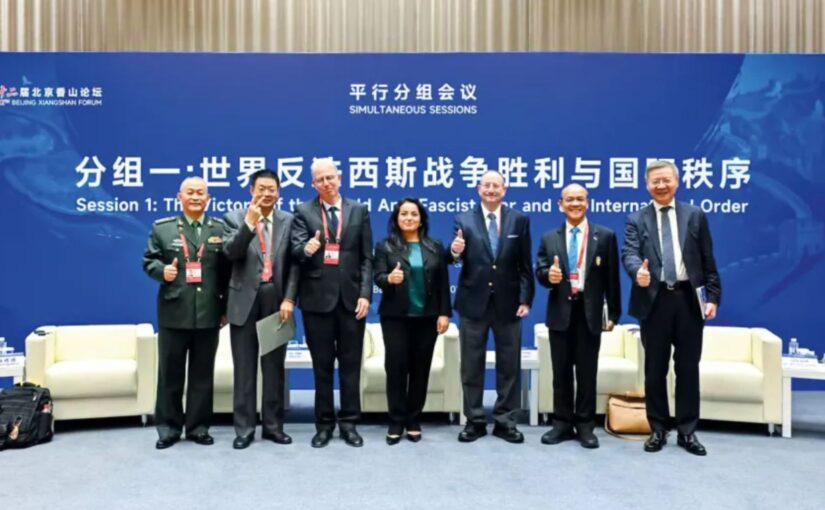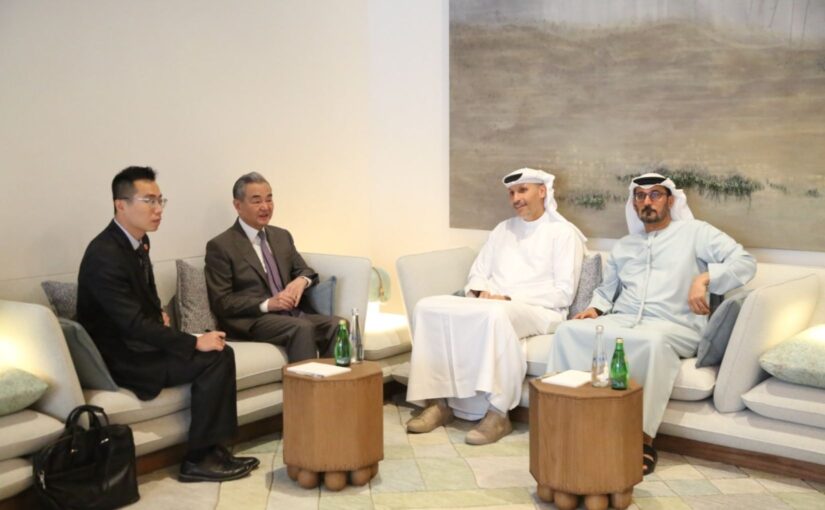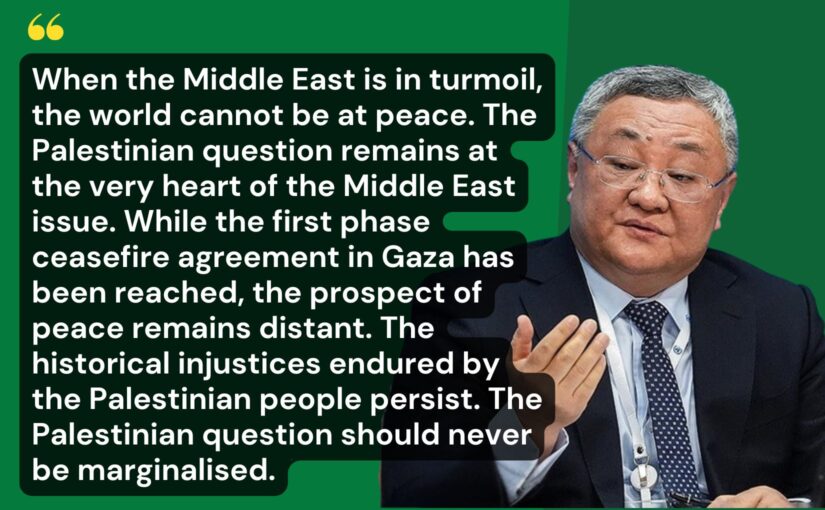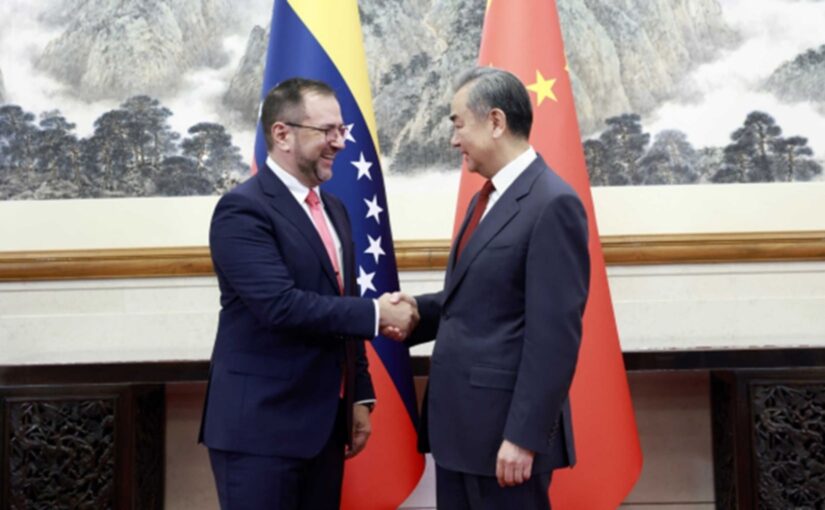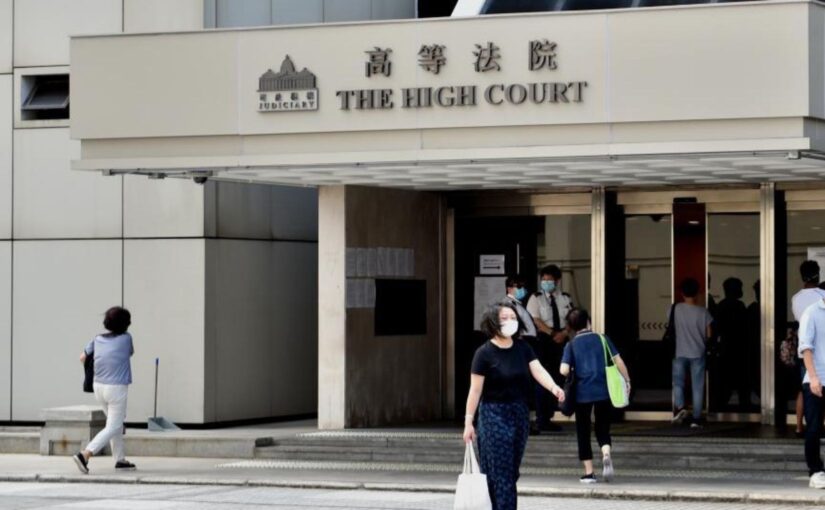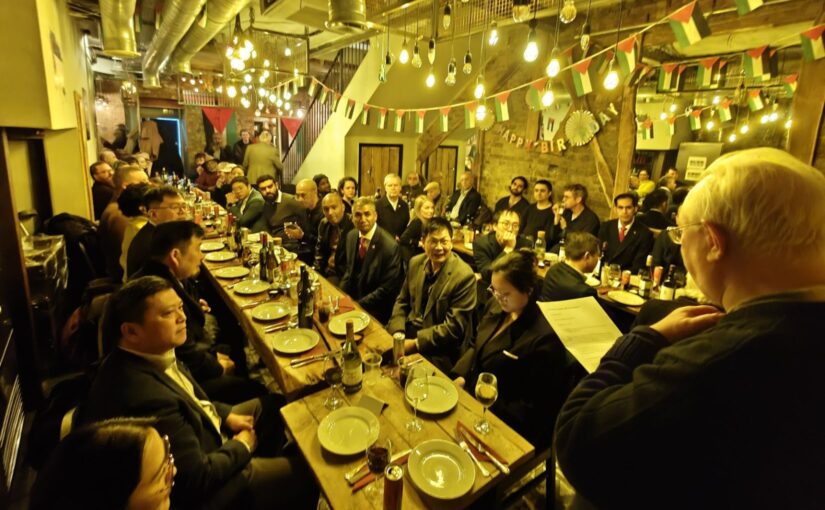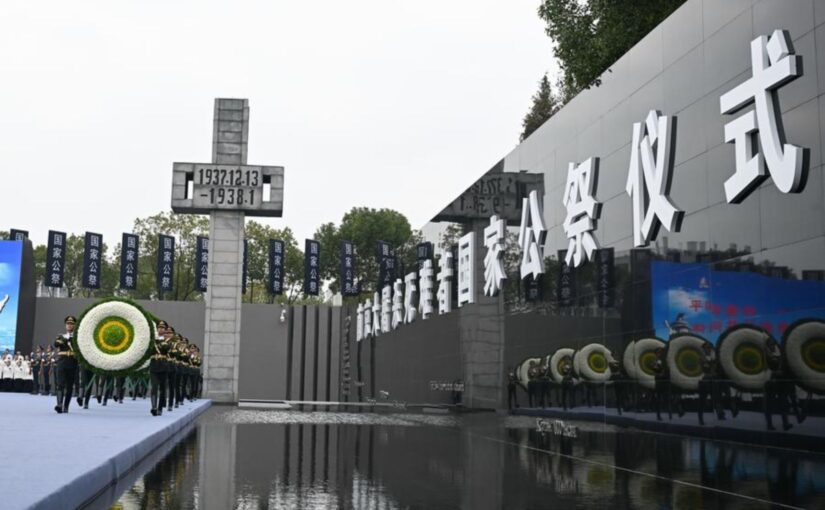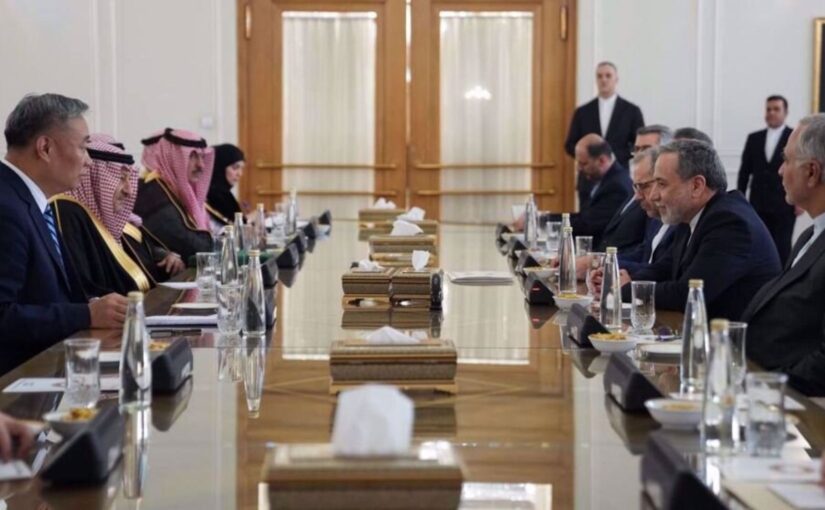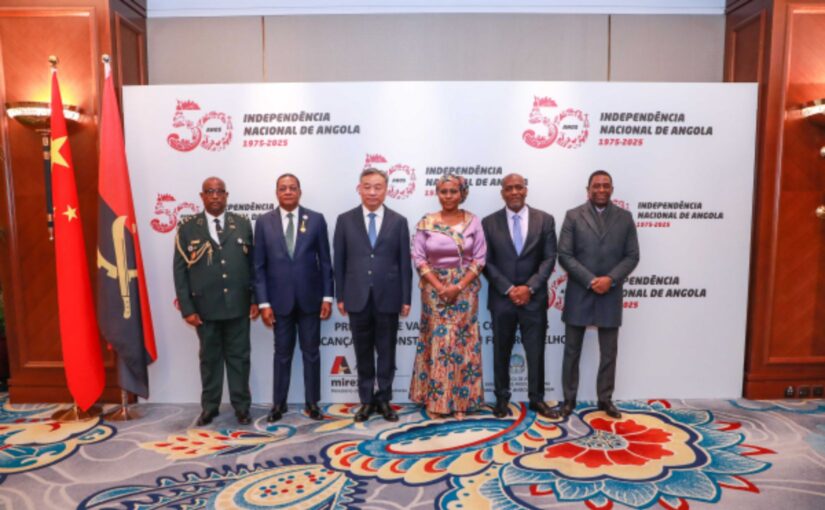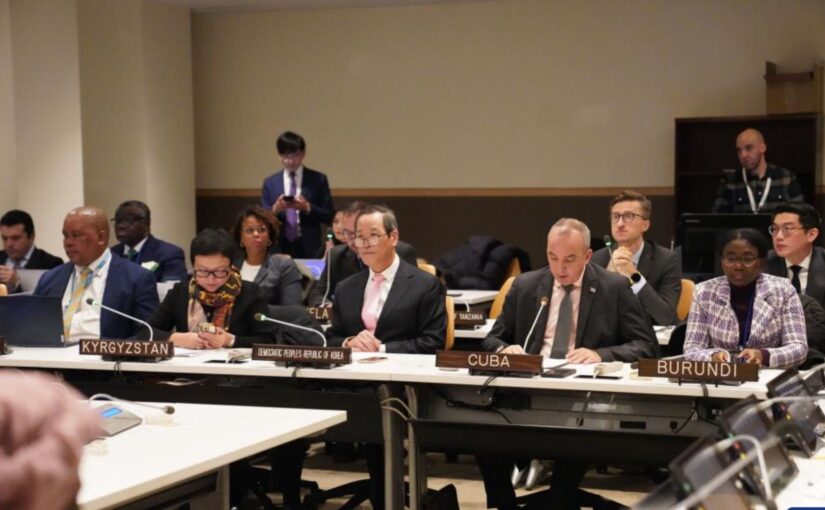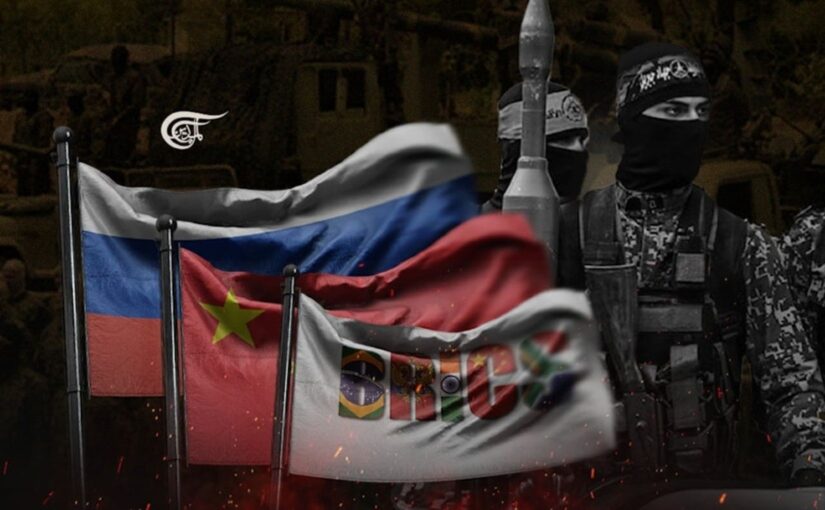The following article by the Montreal-based political activist and writer Arnold August outlines his observations and conclusions following his seven-day visit to China’s Xizang (Tibet) Autonomous Region in October 2023 and is reprinted from the recently published book China Changes Everything.
Arnold notes that, “the reality before 1951 was stark. Under a feudal theocracy, about 5% of the population were serf-owners, while at least 95% were serfs.”
He explains how the crushing of the March 1959 reactionary uprising, that aimed to perpetuate the serf-owning system, opened the way to democratic reforms, development, poverty alleviation and the transition to socialism.
The results have been striking. From 1965 to 2024:
- Per capita disposable income of rural residents rose from 108 to 21,578 yuan.
- Life expectancy more than doubled from 35.5 to 72.5 years.
- Road network length grew from 14,000 km to 124,900 km.
- Rail network operation went from zero to 1,359 km.
- Number of schools expanded from 1,828 to 3,618.
A particular strong feature of the article is Arnold’s refutation of the grotesque charge of “cultural genocide”. Through a comparison of the residential – or boarding – schools that he visited in modern Xizang with the all too recent experience of such institutions for the children of the indigenous populations of the settler colonial states in North America, he makes it very clear who are the real guilty parties when it comes to genocide:
“Consider this testimony from a youth in a boarding school, also called a residential school. Authorities berated him constantly, beat him, forbade him from speaking his language or practicing his culture, and sexually assaulted him. Did this incident occur in China? No. It happened in Canada, as documented by one of the foremost historians of Canada’s Indigenous peoples and residential schools, Dr. Sean Carleton of the University of Manitoba… Even Canada’s own records show that more than 150,000 Indigenous children were forced into residential schools, and an estimated 6,000 children died there.”
Moreover: “While the Tibetan language is flourishing… the proportion of Indigenous people in Canada who can speak an Indigenous language has steadily declined. In 2021, only 13.1% of the Indigenous population reported being able to hold a conversation in an Indigenous language. In the United States, official figures suggest that only about 5% of Indigenous people can do so. In contrast, in Xizang and the Tibetan areas of Qinghai Province, 100% of the population speaks their ancestral language.”
He further notes that: “In Quebec, our music, cinema, journalism, fiction, non-fiction, and poetry remain entirely marginal under the dominance of Anglo-American culture… This personal background has given me a deep appreciation for issues of language, identity, and cultural preservation, making me particularly sensitive to what I observed in Xizang.”
My seven-day visit in 2023 to Xizang (previously known as “Tibet”) provided the foundation for this chapter. I expand here on three articles and one video, first published in Global Times (China) and China Global Television Network (CGTN).[1] I shared this rare experience and gained wide reprints in the West.
From Serfs to Architects of Their Own Destiny
As a participant in the 2023 trip, I viewed Xizang’s historical film footage. The images, video, and still photographs show life under serfdom before the 1951 peaceful liberation. These visuals were reinforced by conversations with people in Xizang, which further solidified our understanding during our tour.
“Tibet” has long been shrouded in mystery and misinformation. But the reality before 1951 was stark. Under a feudal theocracy, about 5% of the population were serf-owners, while at least 95% were serfs. I will never forget the film about a mother, a grandmother, and a small child, all born in the cowshed of a serf-owner. They lived there as the fourth generation under such conditions.
After 1951, Xizang underwent significant changes, notably the rapid expansion of transportation. Yet, the event that remains most vivid for the people we spoke to is the abolition of serfdom on March 28, 1959. After liberation, parts of the old ruling class resisted change to maintain the serf system. On March 10, 1959, the deposed elites who opposed democratic reforms, along with the Dalai Lama, organized a U.S.-led armed revolt. The insurrection was defeated, and the Dalai Lama fled with close followers to India.
While they abandoned Xizang, the People’s Republic of China (PRC) and the Communist Party of China (CPC) pressed ahead in cooperation with Tibetans. According to the people we met during the visit, Beijing created around 10 activist-advisor committees, which were dispatched to grassroots areas more than 190,000 times between 2012 and 2020. Their task was to complete the plan to eliminate extreme poverty. This project, led by and for Tibetans, was achieved in 2020—a remarkable milestone for Xizang.
Since the founding of the Xizang Autonomous Region in 1965, marking its 60th anniversary in 2025, progress has been striking.
From 1965 to 2024, the most recent period for which figures are available, Xizang saw dramatic improvements:
- Per capita disposable income of rural residents rose from 108 to 21,578 yuan.
- Life expectancy increased from 35.5 to 72.5 years.
- Road network length grew from 14,000 km to 124,900 km.
- Rail network operation went from zero to 1,359 km.
- Number of schools expanded from 1,828 to 3,618.[2]
Today, 15 years of publicly funded education are available, from kindergarten through high school.[3] And I discovered even more advances.
Infrastructure as a Unifying Force: From the Qin Dynasty to the Present
The 60th anniversary of the establishment of the Xizang Autonomous Region is being celebrated in 2025. In this context, I would like to share my experience with infrastructure.
My interest in Xizang’s infrastructure began with the Qin Dynasty, which flourished more than 2,000 years ago, and its vision of unification. I first encountered this history during my three-week trip across much of China in 2006. During this tour I learned that the Qin Dynasty established a uniform axle width for its dirt roads. This standard ensured that all animal-drawn carts could follow the same ruts without damaging roads or creating confusion.
It may sound banal, but the problem was serious. Rain could worsen the road conditions. The Qin axle width norm reminded me of driving in Canada in ice and snow, where cars leave separate furrows. Drivers must sometimes slide sideways from one rut to another, an exhausting and unsafe experience.
In the Qin period, the uniform axle width was revolutionary. It showed the dynasty’s dedication to unity. First, the Qin recognized a widespread problem. Then they devised an engineering solution suited to their time. These roads carried goods, such as food, and services. This innovation highlights, for generations of Chinese, an early concern for the population’s well-being. That consideration, rooted in governance 2,000 years ago, remains a feature of political rule in China today.
The Qin connection came to mind again during my 2023 train trip on the “Roof of the World” to Lhasa. The journey began in Qinghai Province, Xizang’s neighbor, where one-fifth of the population is of Tibetan descent. Its capital, Xining, has a modern railway station. From there, we traveled close to 2,000 km over 22 hours, often at altitudes near 5,000 meters. This is equivalent to half the height of Mount Everest. We passed through breathtaking mountains and herds of yak. The long climb also allowed us to acclimatize gradually to the thin air before reaching Lhasa, and it proved ideal for meditating on China’s long tradition of unifying infrastructure—stretching back centuries—now contributing to the integration of Xizang with the rest of China.
This railroad itself is an engineering marvel, recognized even by many Western experts. It is also a medical milestone. More than 2,000 medical staff accompanied the workers who built it under harsh conditions—low oxygen, extreme cold, heavy snow, and unstable permafrost. The railway, along with other transport projects in Xizang, shows that development in the PRC is not just a modern feat. It continues China’s historical tradition of unification through standardization and connectivity.
The Individual and the Collective in Xizang: The Story of a Drone Invention
Beyond the railroad, I was struck by another kind of infrastructure in Xizang. I discovered it in a newly built town near Lhasa, at the High-Tech Zone Innovation and Entrepreneurship Service Platform.
Here, individual initiative is encouraged. One example stood out: a specialized drone designed to help farmers in mountainous areas. Developed by small start-up companies housed in the High-Tech Zone, these drones operate at high altitudes, where it is difficult for people to work. The drones spray pesticides and fertilizers, saving time and lowering costs compared with traditional methods. They also provide advanced field mapping, which supports more substantial harvests and stability in rugged terrain.
But how did such a drone emerge in Lhasa?
At the High-Tech Zone, anyone with a computer and internet access can apply. The appeal is simple: “Bring your ideas.” Yet there are conditions. Applicants must agree to work toward the goals of socialism and modernization set by the PRC and the CPC. Membership in the CPC is not required, but anyone who has been expelled from the party cannot apply. This political orientation is clear even in the murals inside the tech center, which display portraits of leaders from Chairman Mao to President Xi, alongside milestones of the PRC’s development, including Xizang.
Does this political framework stifle individual initiative? Some in the West, shaped by the U.S.-centric notion of the sacred “individual,” may think so. But what I observed suggested otherwise. The tech center represents a balance between collective purpose and individual creativity, a hallmark of socialism with Chinese characteristics. Innovators there integrate social responsibility with personal ambition. They are rewarded not only with the satisfaction of turning their ideas into reality but also with solid incomes from marketing their products.
For me, the drone stood as proof that the market and state-led socialism fully complement each other. Alongside the drive to eradicate extreme poverty and the marvel of the railway, it shows once more how “China changes everything” through a dynamic blend of bottom-up and top-down efforts, where everyone has a role.
Boarding Schools “Here and There”
As part of Western disinformation campaigns against China, authorities in Canada, the U.S., and Europe, along with some of the corporate press, claim that Tibetans face “suppression.” They point to boarding schools in Xizang and neighboring Qinghai Province, where about one-fifth of the population is Tibetan. The PRC is accused of carrying out “cultural genocide” against Tibetans.
But consider this testimony from a youth in a boarding school, also called a residential school. Authorities berated him constantly, beat him, forbade him from speaking his language or practicing his culture, and sexually assaulted him. Did this incident occur in China? No. It happened in Canada, as documented by one of the foremost historians of Canada’s Indigenous peoples and residential schools, Dr. Sean Carleton of the University of Manitoba.[4]
And this was not an isolated case. Multiply it by hundreds of thousands. Even Canada’s own records show that more than 150,000 Indigenous children were forced into residential schools, and an estimated 6,000 children died there.[5]
In 2024, I conducted an exclusive interview with Mohawk Katsi’tsakwas Ellen Gabriel, whose insights carry deep weight for this discussion. In the northern portion of Turtle Island, she first rose to prominence in 1990 as the spokesperson for the Mohawk Nation during the 78-day siege known as the so-called “Oka Crisis.” At that time, fully armed Canadian soldiers encircled her community with armored vehicles, supported by local police.[6] The struggle was over the defense of traditional Mohawk land.
Katsi’tsakwas Ellen Gabriel’s lifelong advocacy has since earned wide recognition. In 2024, she became the first Indigenous person to receive the 38th Grand Prix du Conseil des arts de Montréal, awarded for her decades of work and for a documentary highlighting the pivotal role of Mohawk women in the 1990 land defense.[7] That same year, she published a book on the same subject with Professor Sean Carleton. It quickly became a bestseller and had already reached its fourth printing.[8]
In my interview, Katsi’tsakwas Ellen Gabriel explained that Canada’s “boarding schools” were designed to “get rid of the Indian problem.” This goal should not come as a surprise. As she pointed out, the Canadian Indian Act created a colonial settler state and provided the legal foundation for cultural genocide through the residential school system. That same legislation was even studied and copied by South Africa as a blueprint for Apartheid.
Katsi’tsakwas Ellen spoke candidly about her own childhood. She and her siblings were raised to “feel ashamed of the Mohawk language; my parents whispered it when speaking.” Canada’s aim, she said, was to instill “cultural self-hatred and the erasure of self-esteem.” Despite this, she explained, her parents tried to shield their children from racism. “Some teachers and students called us savages and unruly,” she recalled, but “my parents taught us: you are not a savage, not stupid, you can go to school.”[9]
Even before the recent discovery of unmarked graves at former residential school sites, the Canadian Truth and Reconciliation Commission (TRC) had already exposed the scale of the crimes. In 2015, its final report called on Canada “to confront ‘cultural genocide’ of residential schools.”[10] Other assessments have been even more direct: “Canada is guilty of cultural genocide against Indigenous peoples.”[11] The government formally accepted the TRC report but has become notorious for failing to implement most of its key recommendations. This ongoing inaction and ambiguity have fueled what some now call “residential school denial.”[12] Canada, in denial mode, also denies the view that China’s “Tibet” policy demonstrates how modernization can be pursued alongside cultural preservation and promotion. Furthermore, even as Canada levels unfounded accusations of cultural genocide against China in Xizang and Tibetan regions of Qinghai, it has yet to confront its own human rights violations, including the genocide of Indigenous peoples.
In contrast to the genocidal Canadian residential school system, during my 2023 trip, I visited a boarding school in a Tibetan minority area of Qinghai Province, near the Xizang border. Students are taught primarily the Tibetan language, as well as Chinese and English, to facilitate communication throughout the country. The curriculum also includes Chemistry, History, Psychology, Biology, Physics, Politics, Morality, Geography, Sports, and Health. The cafeteria serves a wide variety of high-quality food and beverages, likely to be the envy of many Western students from working-class families. Up to 1,200 students can dine together across two floors. Modern dormitories are heated with underfloor heating, with separate floors for boys and girls.
While the Tibetan language is flourishing at that boarding school, the proportion of Indigenous people in Canada who can speak an Indigenous language has steadily declined. In 2021, only 13.1% of the Indigenous population reported being able to hold a conversation in an Indigenous language.[13] In the United States, official figures suggest that only about 5% of Indigenous people can do so.[14] In contrast, in Xizang and the Tibetan areas of Qinghai Province, 100% of the population speaks their ancestral language.
“But at What Cost”?
When we challenge the mainstream media narrative about China’s success in building socialism with Chinese characteristics, the inevitable response is often: “What about Tibet?” The insinuation is that, while grudgingly acknowledging China’s progress, this advance supposedly comes at the expense of Tibetan language and culture, broadly defined to include religion. As discussed earlier, this is not the case. Yet the accusation is so pervasive that it is worthwhile examining it from another angle.
During my visit to Xizang, I viewed the region through the lens of my upbringing in Montreal, Quebec, a primarily French-speaking province with this heritage dating back to France since 1618. Yet, in Quebec, our music, cinema, journalism, fiction, non-fiction, and poetry remain entirely marginal under the dominance of Anglo-American culture. Despite government protection efforts, Quebec is constantly inundated with the most superficial American and British cultural icons, and U.S. television dominates our homes. This infiltration occurs either directly, through outlets such as CNN or American culture-focused TV channels, or indirectly, such as through the Canadian media. This personal background has given me a deep appreciation for issues of language, identity, and cultural preservation, making me particularly sensitive to what I observed in Xizang.
My visit to Lhasa’s old town was a powerful reminder of China’s unique approach to integrating language and culture—including religion—with modernity, while fully safeguarding traditional practices. As I walked through Lhasa, I saw people dressed in traditional garments, hundreds of Buddhist monks in religious attire, and traditional architecture alongside modern malls. Children were rollerblading, families were enjoying amusement parks, and curious local people approached our group to practice their English.
At Jokhang Temple, in the heart of the old town, I observed traditional Tibetan architecture housing the Gelug school monastery—the most recent of several key schools of Tibetan Buddhism. The teaching language is, of course, Tibetan. A visit to the imposing Potala Palace, overlooking Lhasa, offered another perspective. The Palace plays a central role not only in religion but also in Xizang’s traditional politics and thought. It contains nearly 700 murals, 10,000 painted scrolls, and an extensive collection of historical documents. If the Western-driven narrative of Tibetan “suppression” were true, China’s commitment to preserving and promoting Xizang’s history would be inexplicable.
The preservation of the Tibetan language is equally evident. At Xizang University, established in 1985 in Lhasa, courses are taught in Tibetan and Mandarin. The university enrolls more than 20,000 students and maintains an internationally renowned Tibetan studies department, along with a majority-Tibetan student body.
The special visit to the Tibetan Ancient Documents Research Center on its Lhasa campus, which focuses on the Phuri Manuscripts, was impressive. These manuscripts constitute China’s most ancient and extensive collection of ancient Tibetan literature. They offer insights into a kingdom established around the 13th and 14th centuries and portray the natural environment, traditional customs, social structures, and history.
If the Western anti-China narrative of “cultural genocide” in Xizang held any truth, China would need to “root out” these seeds of the Tibetan people to erase their collective memory, as is being attempted in Canada and the U.S. against Indigenous peoples. However, on the ground in Xizang, we witnessed the opposite.
The Xizang Museum, completed in 1999, is the first large, modern museum in Xizang. It features a collection of more than 520,000 artifacts, focusing on the various dynastic periods of Tibetan history. It is widely accepted that, to commit genocide against a people, the very roots of their civilization and history must be eradicated. Yet, on the ground, we observed the opposite.
We also visited the Tibetan Autonomous Region Intangible Cultural Heritage Preservation Center. Since 2012, the central and local governments have invested more than 400 million yuan ($55.7 million) in protecting Tibetan intangible cultural heritage through this center. We saw seniors playing Tibetan musical instruments, and youth performing traditional Tibetan opera. The unfortunate situation in Quebec stands in sharp contrast to the flourishing Tibetan culture. What I saw in Xizang was a proactive, well-funded, and systematic commitment to heritage preservation.
In conclusion, “China changes everything” in Xizang through the creative application of socialism with Chinese characteristics, while promoting its language, culture, and religion.
[1] Arnold August, “Witnessing Xizang: Serfdom to Socialism with Chinese Characteristics,” CGTN, May 23, 2024, https://news.cgtn.com/news/2024-05-23/Witnessing-Xizang-Serfdom-to-socialism-with-Chinese-characteristics-1tPXIWdtBHq/p.html; Arnold August, “Xizang at 60: How the region Balances Tradition, Nature, and Progress,” Global Times, August 31, 2025, https://www.globaltimes.cn/page/202508/1342195.shtml; Arnold August, “What I Saw in Xizang Was a Proactive, Well-Funded and Systematic Commitment to Heritage Preservation,” Global Times, July 29, 2025, https://www.globaltimes.cn/page/202507/1339572.shtml; Arnold August, “Truth Seen in Xizang: Xizang’s Infrastructures Links Tradition with Modernity, Says a Canadian Journalist,” Global Times, September 9, 2025, https://www.globaltimes.cn/page/202509/1343040.shtml.
[2] GT Graphic, “60 Years of Xizang Autonomous Region’s Development in Numbers,” Global Times, August 19, 2025, https://www.globaltimes.cn/page/202508/1341207.shtml.
[3] GT Staff Reporters, “Feast on Plateau: Images, Data Reveal Xizang’s Modernization Miracle on Autonomous Region’s 60th Anniversary,” Global Times, August 22, 2025, https://www.globaltimes.cn/page/202508/1341521.shtml.
[4] Alessia Passafiume, “Manitoba Historian Concerned Residential School Denialism Will Rise After Biden’s Apology in U.S.,” CBC News, October 27, 2024, https://www.cbc.ca/news/canada/manitoba/canada-indigenous-residential-school-denialism-1.7364980.
[5] USW union directors, “There’s No Denying It: Indigenous Children Suffered and Died at Residential Schools,” United Steelworkers (USW), September 22, 2023, https://usw.ca/theres-no-denying-it-indigenous-children-suffered-and-died-at-residential-schools/.
[6] Katsi’tsakwas Ellen Gabriel, “Kanehsatake 35 Years Later: Remembering the Day Canada Sent in the Military to Violently Clear Mohawk Land for a Golf Course,” Ricochet Media, July 11, 2025, https://ricochet.media/indigenous/landback/kanehsatake-35-years-later-remembering-the-day-canada-sent-in-the-military-to-violently-clear-mohawk-land-for-a-golf-course/.
[7] Conseil des arts de Montréal, “Katsi’tsakwas Ellen Gabriel Wins the 38th Grand Prix du Conseil des arts de Montréal,” press release, April 11, 2024, https://www.artsmontreal.org/en/news/katsitsakwas-ellen-gabriel-wins-the-38th-grand-prix-du-conseil-des-arts-de-montreal/.
[8] Katsi’tsakwas Ellen Gabriel, with Sean Carleton, When the Pine Needles Fall: Indigenous Acts of Resistance (Between the Lines, 2024), https://btlbooks.com/book/when-the-pine-needles-fall.
[9] Arnold August, Interview: Katsi’tsakwas Ellen Gabriel, Grand Prix, Conseil des arts de Montréal by Arnold August, YouTube video, uploaded May 22, 2024, https://www.cbc.ca/news/politics/truth-and-reconciliation-commission-urges-canada-to-confront-cultural-genocide-of-residential-schools-1.3096229.
[10] CBC News, “Truth and Reconciliation Commission Urges Canada to Confront ‘Cultural Genocide’ of Residential Schools,” June 2, 2015, https://www.cbc.ca/news/politics/truth-and-reconciliation-commission-urges-canada-to-confront-cultural-genocide-of-residential-schools-1.3096229.
[11] APTN National News, “Canada Guilty of Cultural Genocide Against Indigenous Peoples: TRC,” June 2, 2015, https://www.aptnnews.ca/national-news/canada-guilty-cultural-genocide-indigenous-peoples-trc-2/.
[12] Niigaan Sinclair and Sean Carleton, “Residential School Denialism Is on the Rise. What to Know,” The Tyee, June 20, 2023, https://thetyee.ca/Opinion/2023/06/20/Residential-School-Denialism-On-Rise/.
[13] Statistics Canada, Indigenous Languages across Canada, Census in Brief, 2021 Census of Population: Analytical Products, 98-200-X2021012 (Ottawa, released March 29, 2023), https://www12.statcan.gc.ca/census-recensement/2021/as-sa/98-200-x/2021012/98-200-x2021012-eng.cfm.
[14] Julie Siebens and Tiffany Julian, Native North American Languages Spoken at Home in the United States and Puerto Rico: 2006–2010, American Community Survey Briefs ACSBR/10-10 (Washington, DC: U.S. Census Bureau, December 2011), https://www2.census.gov/library/publications/2011/acs/acsbr10-10.pdf.
